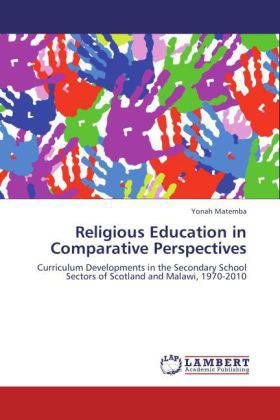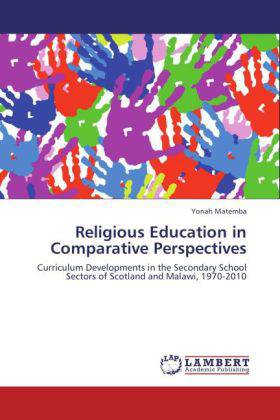
Bedankt voor het vertrouwen het afgelopen jaar! Om jou te bedanken bieden we GRATIS verzending (in België) aan op alles gedurende de hele maand januari.
- Afhalen na 1 uur in een winkel met voorraad
- In januari gratis thuislevering in België
- Ruim aanbod met 7 miljoen producten
Bedankt voor het vertrouwen het afgelopen jaar! Om jou te bedanken bieden we GRATIS verzending (in België) aan op alles gedurende de hele maand januari.
- Afhalen na 1 uur in een winkel met voorraad
- In januari gratis thuislevering in België
- Ruim aanbod met 7 miljoen producten
Zoeken
Religious Education in Comparative Perspectives
Curriculum Developments in the Secondary School Sectors of Scotland and Malawi, 1970-2010
Yonah Matemba
Paperback | Engels
€ 102,45
+ 204 punten
Omschrijving
This book provides a systematic comparison of Religious Education (RE) as it has evolved in the secondary school curriculum of Scotland and Malawi during the past four decades (1970-2010). It seeks to draw analogies and, where valid, to indicate significant points of difference regarding key issues underpinning this development between two countries existing in radically different national contexts, one Western (Scotland) and other African (Malawi). The conceptual framework of the issues described in the book is based on concepts and debates in the discourse of contemporary RE. The book argues that despite some points of difference, there is greater similarity on salient issues regarding the nature of RE in the two countries, in areas such as the need for curriculum reform, micro-politics of reform, provision in schools and status of the subject. Given the challenges the subject faces in Scotland and Malawi, the book concludes that without government intervention and support from other key stakeholders, RE will continue to be regarded as a marginal curriculum subject.
Specificaties
Betrokkenen
- Auteur(s):
- Uitgeverij:
Inhoud
- Aantal bladzijden:
- 224
- Taal:
- Engels
Eigenschappen
- Productcode (EAN):
- 9783847311478
- Verschijningsdatum:
- 28/12/2011
- Uitvoering:
- Paperback
- Afmetingen:
- 152 mm x 229 mm
- Gewicht:
- 336 g

Alleen bij Standaard Boekhandel
+ 204 punten op je klantenkaart van Standaard Boekhandel
Beoordelingen
We publiceren alleen reviews die voldoen aan de voorwaarden voor reviews. Bekijk onze voorwaarden voor reviews.









